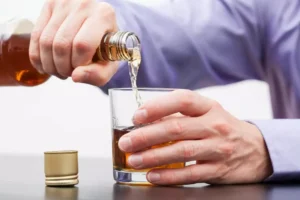The Science of the Sauce: What Happens to Your Brain When You Drink Alcohol?

The symptoms of alcohol intoxication range from mild to severe, depending on how much alcohol a person consumes and how quickly their body metabolizes it. The liver detoxifies alcohol from the body but can only do so in small quantities. If a person’s consumption exceeds their rate of alcohol metabolism, intoxication results. The duration of alcohol intoxication depends on the quantity of alcohol that a person consumes. Various factors can also influence how long a person may feel drunk for.
- This is your body’s way of reacting to the toxic effects of too much alcohol.
- A single drink may put a person over their state’s BAC limit for driving.
- It’s important to recognize and manage these changes responsibly to ensure the safety and well-being of oneself and others.
How does alcohol affect motor skills and balance?
The following are some questions people often ask about drinking alcohol. The alcohol by volume (ABV) also affects a person’s inebriation duration. ABV is the percentage of pure alcohol within a drink’s total liquid https://ecosoberhouse.com/article/best-way-to-flush-alcohol-out-of-your-system/ volume. Engaging in certain activities under the influence of alcohol, such as driving a car, can lead to hazardous outcomes. Before a person consumes alcohol, it is important to know how long they will be impaired.

Alcohol Poisoning
We publish material that is researched, cited, edited and reviewed by licensed medical professionals. The information we provide is not intended to be a substitute for professional medical advice, diagnosis or treatment. It should not be used in place of the advice of your physician or other qualified healthcare provider. It should not be used in place of the advice of your physician or other qualified healthcare providers.
- BTW, tolerance often goes hand-in-hand with dependence, which is one of the stages of alcohol misuse.
- Alcohol has a profound impact on the brain, affecting its normal functioning.
- Just because you can “hold your drink” and don’t feel intoxicated doesn’t mean that you’re not.
- We publish material that is researched, cited, edited and reviewed by licensed medical professionals.
- It’s important to be honest about your substance use if you’re in the hospital while intoxicated.
What are the complications of intoxication?
Alcohol starts entering your bloodstream through small blood vessels in your mouth and tongue before traveling through your digestive system. It suppresses the go-getter glutamate and gives the chill GABA a boost. The world starts to spin, our movements become sluggish, and that elusive word on the tip of the tongue pulls a disappearing act. If there are any concerns about content we have published, please reach out to us at

- Learn more about the short- and long-term effects of alcohol consumption here.
- Our state-specific resource guides offer a comprehensive overview of drug and alcohol addiction treatment options available in your area.
- A person can usually tell when they are intoxicated, but it may be challenging to spot the signs in others.
When alcohol suppresses ADH, it causes your kidneys to release more water, which is why you pee more when you drink. Your brain produces antidiuretic hormone (ADH), which tells your kidneys how much water to retain. Alcohol limits ADH production, which brings us to our next body part. Read on to learn exactly why and how you go from drink to drunk.
The effects of alcohol
At this point, alcohol is impairing both your mental and physical abilities. It’s essential to recognize that, despite feeling in control, your ability what does being drunk feel like to make sound judgments is greatly reduced. Because alcohol changes the way the brain processes information, it also makes it difficult for people to make suitable decisions or assess their own behavior. For example, people who are very drunk might underestimate how intoxicated they are. Cultural attitudes towards drinking can shape how individuals perceive and engage in alcohol consumption, influencing drinking patterns and social norms. Frequent drinking can lead to long-term psychological effects such as depression, anxiety, and increased risk of developing alcohol dependence.
Mild to moderate intoxication itself typically doesn’t require medical attention. But it can lead to certain issues (like violent behavior) or injuries (like falls), which may need medical treatment. Healthcare providers consider severe intoxication of a substance to be poisoning or overdose (like alcohol poisoning or opioid overdose).
The Experience Blog
Pay attention to how you feel after each drink, and listen to your body’s signals. If you start to feel overly relaxed, dizzy, or disoriented, it’s a sign to stop drinking and give your body time to process the alcohol you’ve already consumed. Many people believe that drinking coffee or water will help them sober up quickly. While staying hydrated is important, it won’t speed up the process of alcohol leaving your system.
Negative Social Interactions
Alcohol significantly impairs judgment and decision-making abilities. This impairment is due to its effect on the brain’s prefrontal cortex, which is responsible for rational thinking and impulse control. As a result, individuals may engage in risky behaviors, such as driving under the influence or making poor financial decisions. At this stage, significant loss of coordination and memory blackouts can occur after consuming 4-5 drinks for women and 5+ for men.
